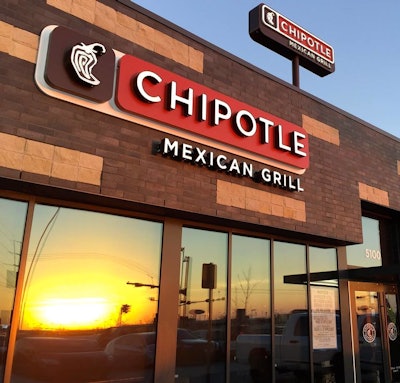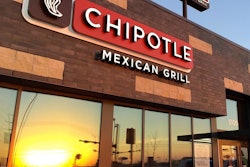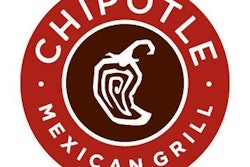
Today’s edition of The Wall Street Journal chastises Chipotle Mexican Grill over its aggressive local sourcing strategy in light of its inability to determine the source of the E.Coli outbreak that has sickened customers in several states. The editorial, titled “A Chipotle Education,” notes that the on Monday, the Centers for Disease Control and Prevention announced another E.Coli outbreak.
The Wall Street Journal suggests the source of the contamination is likely from the 10 percent of its locally-grown produce, which is part of the company’s commitment to “the very best ingredients.” Working with so many suppliers, the editorial notes, makes it hard to determine the poison’s source. In light of the company’s new commitment to rely less on local suppliers and prepare ingredients in central kitchens, the company is acting in ways that it has derided as “factory farming,” the paper notes.
Chipotle’s local sourcing was actually made possible by the efficiencies of modern agriculture, the editorial notes: the longing for colonial era farming has increased as the number of people working on farms has plummeted. Noting that Chipotle stock has dropped 25 percent for the year, the paper observes: “The market is a brutal teacher when customers and investors realize a company isn’t practicing what it preaches.”
Editors Insight: The ramifications of Chipotle’s E.Coli outbreak are obvious in more than just its stock price fallout. The long lines at many if not most Chipotle restaurants have shortened.
One week ago, the company took out a full-page ad in The Wall Street Journal describing its supply chain safety program. There is no reason to suspect the ad was intended to blunt any criticism from the newspaper’s editorial writers, but if it was, it certainly didn’t work.
Chipotle can’t be faulted for trying to respond to customer needs, which have been changing. Consumers want fresh food at a reasonable price. Many consumers do prefer locally-sourced food.
But the reality is the foodservice industry has changed, thanks to modern agriculture, new processing technology and more efficient distribution. These changes have delivered better quality food to more people at less cost. Foodservice companies benefit from these improvements and they should not make light of them for any reason.
Foodservice companies and food retailers have to respond to customer needs. But in doing so, they need to recognize the safety precautions needed in light of a more complex food supply chain.
This has been a tough lesson for Chipotle. Hopefully, the food industry as a whole is taking note. 12-23-15 By Elliot Maras

















